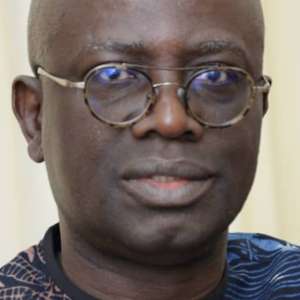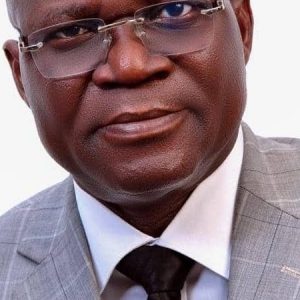MTN Nigeria CEO, Dr. Karl Toriola, has made a case for the adoption of digital skills and curriculum reform at the 11th public lecture of the Sigma Club, University of Ibadan, recently.
Speaking on the theme, ‘Leveraging Technology and Digital Education for Mass Employment, Wealth Creation and Poverty Alleviation’, Toriola said that technology and education can drive large-scale transformation by unlocking access to both global and local job markets.
He explained that digital tools enable entrepreneurship, remote work, and access to essential services, especially in underserved areas.
He highlighted several barriers, including the infrastructure deficit caused by high deployment costs, poor electricity, and insecurity in rural areas; digital literacy and education gaps; gender and regional disparities; outdated or inconsistent government policies; and weak public-private coordination.
Referencing a story about a high-achieving Nigerian doctor, he said, “I saw an article a few days ago about a Nigerian medical student or doctor who qualified simultaneously in (different) specialisations of medicine. It’s incredible what some of our people are doing. Our youths are ready. Our systems must be ready too.”
Among his recommendations, Toriola called for expanded digital infrastructure, changes to school curricula, stronger public-private partnerships, and programmes designed with gender and cultural awareness in mind.
“We must make education employable,” he said. “We have to create opportunities for students to practice what they are learning with institutions, private-sector institutions that are using those skills of the future.”
Toriola also emphasised that while automation and robotics dominate conversations about the digital economy, there are still significant opportunities in content creation, manufacturing, and agriculture.
“Huge opportunities exist in Nigeria. We need to provide the environment for the Nigerian youth to thrive by driving connectivity, changing the curricula to allow our students to acquire the skills that are required in the job market of today,” Toriola stated.
While calling for dedication, focus and hard work, he stressed that Nigerians have an immeasurable capacity to deliver if given the right opportunities.
“Initiatives like MTN’s recently launched Digital Skills Academy reiterate the company’s commitment to expanding digital access and opportunity. The platform includes a career guidance tool to help users identify and pursue paths aligned with their strengths and market demand,” added the MTN CEO. “It forms part of the MTN Foundation’s Digital Skills for Digital Jobs programme, which supports the National Digital Economy Policy and Sustainable Development Goal 4 on quality education.”
Governor Seyi Makinde, who was represented by his Deputy Chief of Staff, Hon. Folajimi Oyekunle, noted that the lecture’s theme was timely and aligned with the administration’s focus on innovation and inclusive development.
Citing initiatives such as the waste-to-wealth programme, which created 12,000 direct jobs, and the recruitment of 21,000 teachers, he highlighted efforts to improve employment outcomes in the state.
He added that the state’s internally generated revenue had risen to 8.5 billion in the first quarter of 2025, compared to a pre-2019 average of 1.6 billion.
“The government so far has worked in line with all stakeholders to create an enabling environment for job creation, which gives our graduates the opportunity to be employed in government work. As a government, we continue to support and encourage wealth in the state and also to support programmes like this, which in one way or the other, gives back to their school,” he said.
Stay ahead with the latest updates!
Join The Podium Media on WhatsApp for real-time news alerts, breaking stories, and exclusive content delivered straight to your phone. Don’t miss a headline — subscribe now!
Chat with Us on WhatsApp




